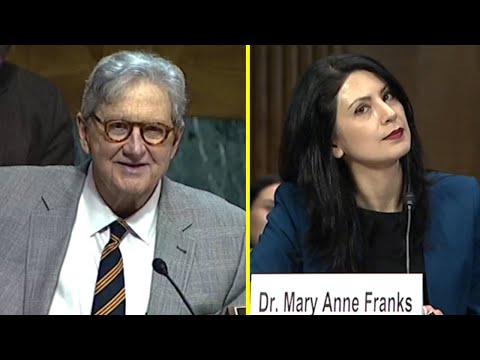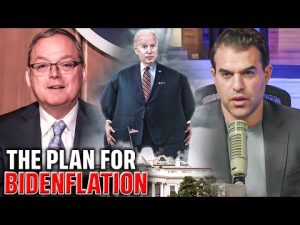**The Great Academic Debate: Censorship, High Stakes, and a Sprinkle of Humor**
In a world where opinions fly faster than a cheetah on roller skates, the recent congressional hearing featuring Professor Franks brought captivating drama and some hearty chuckles to the stage. As the spotlight swung to him and his colleagues, the tension in the room could be felt like an over-cooked Thanksgiving turkey. The discussion centered around free speech, government interference, and the sometimes messy intersection of politics and academia. Professor Franks took the stand with the weight of his thoughts and tweets hanging above him like a cartoonish rain cloud.
Professor Franks, a figure known for his fiery words, dared to claim that the Biden Administration’s supposed overreach into private speech was nothing more than a myth. Yet, as witty as a stand-up comedian, he deftly maneuvered through an intense line of questioning about the realities of political influence in America. The question on everyone’s mind? Whether his personal political bias was causing him to see things through a particularly rosy or cloudy lens. He firmly maintained that it was the constitution, not partisanship, that guided his views. It seems his view of the Supreme Court’s role was a bit like a magic eight ball — mysterious and deeply subjective.
As the discussion moved on to some striking claims in his writings, the tension thickened like a fog on a chilly morning. One particularly eyebrow-raising moment was when Professor Franks commented on the Supreme Court’s decisions regarding self-defense and gun rights. He described the Constitution’s application as a “homicide pact” and charged that it perpetuated a culture favoring “white men.” With words that zinged like a magician’s wand, he seemed to imply that the justices might be playing a risky game of political charades. The room buzzed with murmurs; was he a professor or a provocateur?
The dialogue quickly evolved from academic discourse to a strategic quiz show as a member of the committee pointed out Franks’ social media activity. Fair or foul, the professor had made some shockingly bold statements on Twitter about the perceived hatred of women in America. While explaining the relevance of his tweets — which were clearly generated from a very passionate viewpoint — he stumbled slightly at questions about balance and fairness. After all, if tweets were pieces of candy, he was one of those people who kept the candy shop open late with a steady flow of hot takes.
In a classic display of political theatrics, the hearing showcased the often-polarized views around critical issues. The back-and-forth exchanges resembled a particularly intense game of chess, where each side attempted to outsmart the other while simultaneously throwing in some surprise tactics. With accusations of “white male supremacy” tossed around like confetti, it quickly became clear that this was not just a discussion; it was a colorful display of the American political circus at its finest.
At the end of the day, what shone through this tangled web of testimony and debate was a reality that the audience could not ignore: the intersection of free speech, political belief, and academic integrity is like a fidget spinner in a tornado. It demands attention, sparks conversation, and reminds us all that understanding each side is key to a healthy democracy — and maybe a good laugh or two as everyone tries to find some common sense amidst the chaos.



